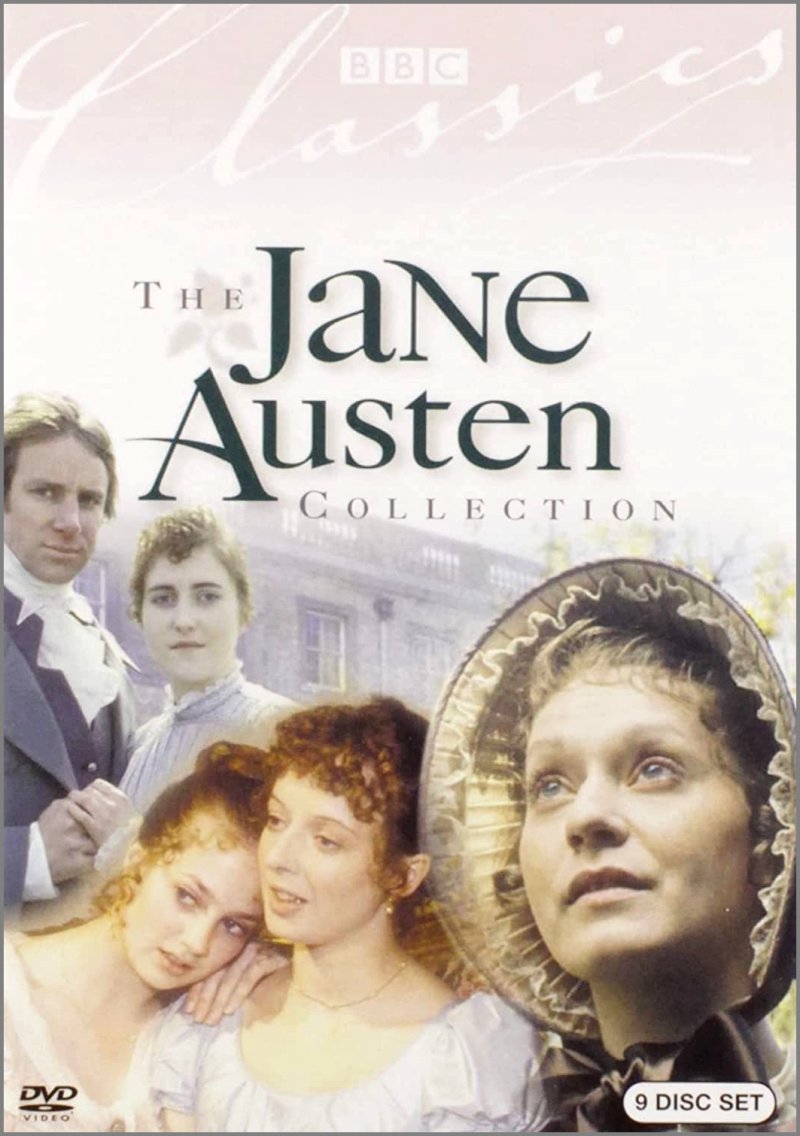To me, an “adaptation” is an attempt to present one of Jane Austen’s stories in a visual medium, being reasonably faithful to the characters. the plot, and the major cultural touchstones of Regency England. (Some folks would remove the last from that list of qualifications, identifying, say, the movie Clueless as an adaptation of Emma.)
Austen’s stories have been played out on stages, in movie theaters, and on television for close to two centuries. It would be impossible to track down most of the plays, and several of the early movies and television adaptations have been lost for all intents and purposes.
Every attempt to present one of Austen’s stories to contemporary audiences has required some compromise, some more successful than others.
Some of the earlier adaptations were streamlined or dumbed-down to make them more accessible to audiences unfamiliar with the source material. And – truth be told – compressing any Austen story to a two-hour format required omissions that would have upset purists, had that audience made a large enough percentage of the market to worry about.
BBC to the Rescue – In the 1980s, BBC created miniseries versions that better satisfied purists, by incorporating most of the plot details, dialogue, and minor characters. Some folks find some of them hard to watch today – the characters nearly all act with too much reserve, the tedious parts seem to drag out, and most of the heroines are portrayed as victims too nervous to speak out on their own behalf most of the time. Ironically, even Emma sometime seems more hesitant than headstrong. (I do admit liking the quirky interpretation of Northanger Abbey, though.)
 One thing that bothers many people but not me is the fact that they often used stage actors who didn’t exactly look young or attractive enough for the parts they were playing. On the other hand, some viewers appreciate the extra content – in some cases it makes the characters’ motivations clearer.
One thing that bothers many people but not me is the fact that they often used stage actors who didn’t exactly look young or attractive enough for the parts they were playing. On the other hand, some viewers appreciate the extra content – in some cases it makes the characters’ motivations clearer.
One collection that includes what I think are the earliest BBC adaptations of Austen’s six major works is shown at the right.
Fine Print: If you click on that picture and buy the product on that visit, we should receive about a dollar commission, which will go toward supporting this site, at no cost to you. If you go to some other page, and it pops up and you purchase it then, the other site gets the pennies, though. So coming back and going through our pages for this sort of purchase helps keep us from going quite so far in the red every year. Just saying . . . .
In addition, several movie studios have taken it upon themselves to create 2-hour interpretations that gloss over some of the details, but generally get the main part of the story across. This “friendly competition” between the movie industry and BBC seems to have “raised the bar” for quality from both sides of the Atlantic, so there are a wealth of adaptations worth viewing and possibly re-viewing today.
For the most worthwhile and watchable versions of each major Austen work (and a couple minor ones), check out the following list:
- Northanger Abbey
- Pride and Prejudice
- Emma
- Mansfield Park
- Persuasion
- Sense and Sensibility
- Lady Susan
If you’re wondering about Sanditon, I’ve listed it on the “Spinoffs” page because only the first few episodes are based on Jane Austen’s writing – she only wrote a few chapters.
